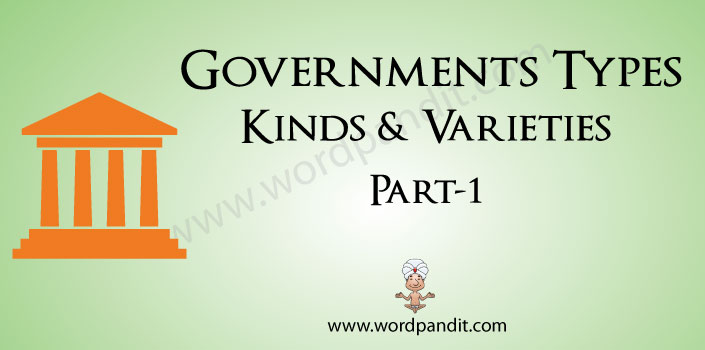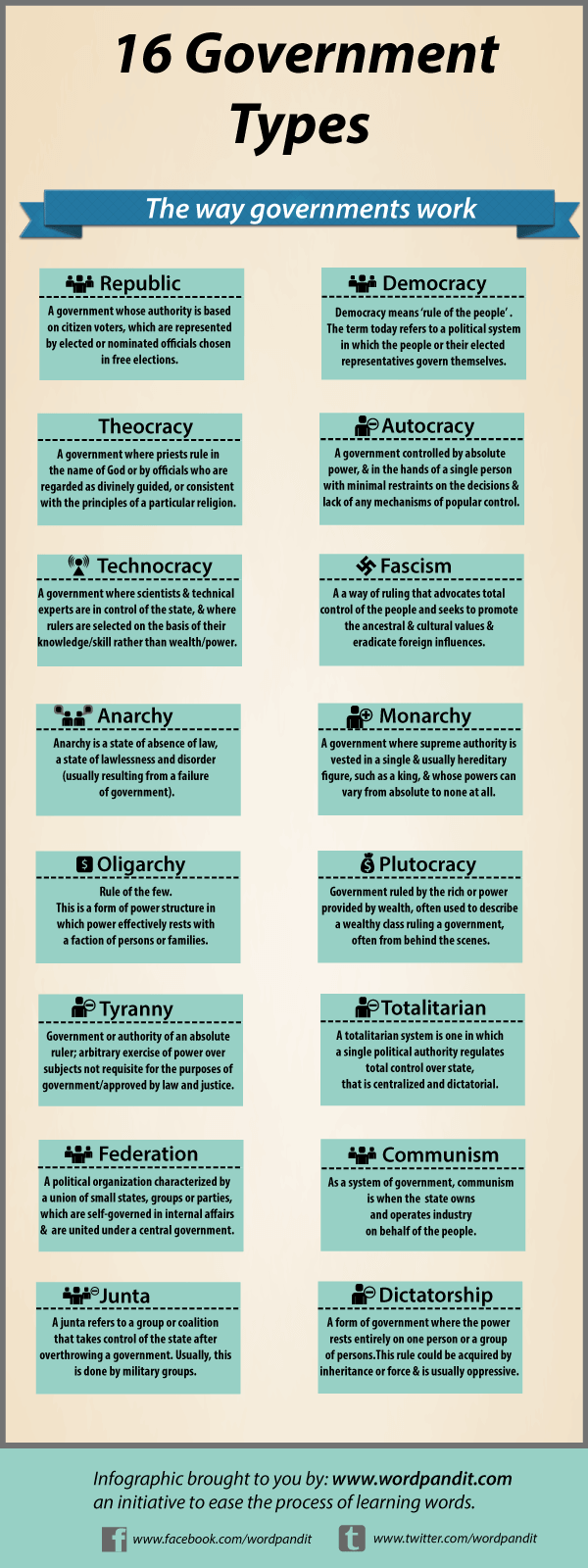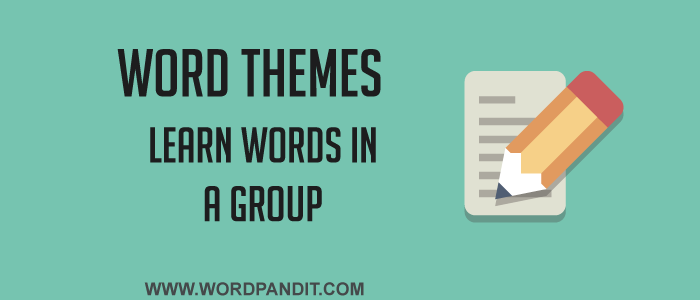Governments play a pivotal role in society, one which defines the fate of the citizens they govern. But the way governments operate is not same, in fact the variation is immense. Governments are like our fingers of our hands, just like each finger has its own length and shape, different governments have their different form and functioning. In this post, we study 10 such forms of governments and how they act. Along the way, we also look into the linguistic origins of these governments and how they are called what they are. Let’s dig into these words:
1. Anarchy
Having its roots from the Greek word meaning ‘no rule’, anarchy is a state of absence of law. The theory of anarchism proposes to do away with any kind of existing governments and build a society wherein each person has the freedom to exercise his will, without any controlling authority.
2. Democracy
Originating in Ancient Greece, democracy means ‘rule of the people’.The term today refers to a political system in which the people or their elected representatives govern themselves, rather than being governed, so everyone has an equal say in the decisions affecting their lives.
3. Monarchy
It is the type of government having a hereditary chief of state(a king or queen), usually known as a monarch, with life tenure and powers varying from nominal, where the powers of the monarch are regulated by a constitution, to absolute, where the monarch enjoys unlimited powers. Most modern states with monarchic rule are constitutional monarchies, with laws framed to protect the rights of citizens. The era of absolute monarchs almost seems to have vanished now and it is something that we hardly see.
4. Tyranny
The roots of this kind of rule from the Latin ‘tyrannia’, meaning the rule of a tyrant (a cruel master). It is the government or authority of an absolute ruler; hence, arbitrary exercise of power over subjects and others not requisite for the purposes of government or approved by law and justice. Such a rule has a negative connotation as it is often characterised by the threat of punishment and violence.
 5. Republic
5. Republic
Republic is a government whose authority is based on citizen voters, which are represented by elected or nominated officials chosen in free elections, as opposed to a monarchy or a dictatorship where the supreme power lies with the ruler.
6. Totalitarian
Easy to decipher from the ‘total’; a totalitarian system is the one in which a single political authority regulates total control over the state that is centralised and dictatorial. It advocates complete subservience to the political authority which controls.
7. Oligarchy
The word is from the Greek term for “rule of the few.” It is a form of power structure in which power effectively rests with a faction of persons or families. The people that form the ruling group are usually a group of distinguished people in terms of wealth or power who pass their influence from one generation to the next.
8. Federation
It can be defined as political organisation characterised by the union of small states, groups or parties, which are self-governed in internal affairs and are united under a central government. The division of power among the states and the central governing body is typically constitutionally entrenched. A federal government having the constitutional structure that can be considered the opposite of a unitary state system
9. Theocracy
A government of a state by priests ruling in the name of God or gods, or by officials who are regarded as divinely guided, or consistent with the doctrines and principles of a particular religion or religious community. There is little room for dissent as the divine order is considered unquestionable and absolute.
10. Communism
Derived from the French Commun(common), it is a revolutionary socialist movement aimed at creating a classless society that abolishes private ownership. The property is held by the community rather than the individuals and all activity is controlled by the government. As a system of government, communism is often closer to a form of socialism, in which the state owns and operates industry on behalf of the people.
The second post in this series can be found here:
1. Governments Types: Kinds & Varieties-2
Infographic for Government Types








Thanks 👍 bro my homework is done
This will be helpful!
Excellent Information, Thanks for this Knowledge.
like this website
Nice post